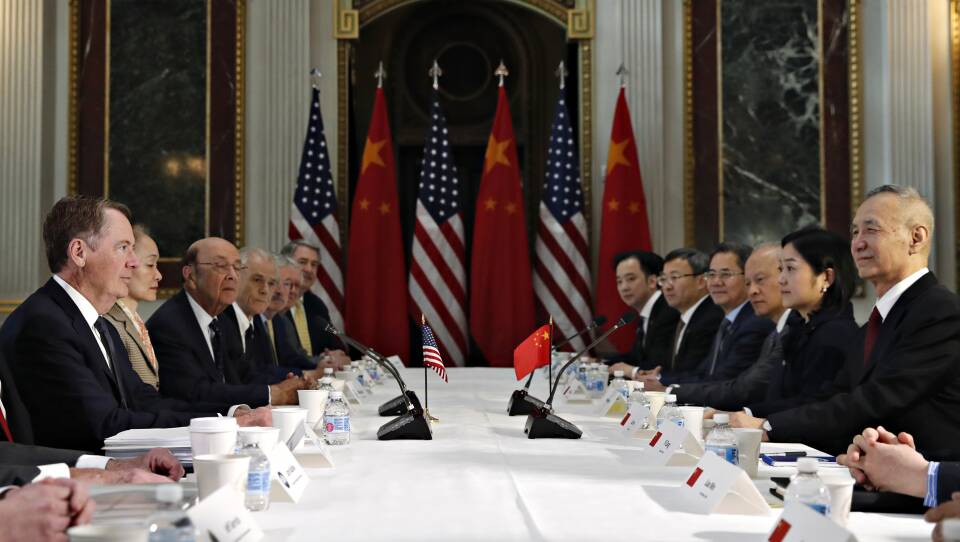In the past several months, China and the U.S. have been at loggerheads as they have tried to sketch out a trade deal.
But the ongoing trade war between two of the world's most powerful nations has eroded trust between their governments, and the U.S.-China relationship is now deeply fractured. Experts say China is becoming a superpower to be reckoned with, and the upcoming trade deal could determine both countries' fates.
Ian Bremmer, president of Eurasia Group and GZERO Media, says he is confident that the countries will arrive at a conclusive deal that will benefit both sides. But, he says, he also sees China one of the top risks for the U.S. in 2019.
“The thing that should be worrying the United States strategically is not that the Chinese is ripping off American intellectual property, which they do, but rather that they’re taking American strategy,” he said.
Drawing parallels with the Marshall Plan, Bremmer says he believes China’s grandiose infrastructure and investment plans in developing countries is part of a strategy to align other countries’ political interests with China’s agenda.
George Yip agrees that China is becoming a key player in the global sphere. Yip, a professor of marketing and strategy at Imperial College Business School in London and co-author of “Pioneers, Hidden Champions, Changemakers, and Underdogs: Lessons from China's Innovators,” says that the Chinese government has been actively encouraging Chinese students, educated in the west, to invest their knowledge back in their home country. He thinks this trend has led to a boom in small Chinese technology companies that have been at the helm of China’s progress.
Bremmer says that while the American Dream has been faltering, China has been offering opportunities for a better quality of life.
“[The] Chinese have watched their country go from zero to hero in the last 40 years,” he said. “The China Dream [now] seems very real for many people.”
Along with the Chinese government’s initiatives to retain talent, Trump’s “America First” rhetoric also seems to be discouraging potential foreign students from coming to the U.S., Bremmer says. A report by the National Science Foundation found that the percentage of science and engineering graduate students from overseas fell by 6 percent between 2016 and 2017.
While the Chinese government has been instrumental in pushing technological innovations, Bremmer warns of two major downsides that may slow China’s growth: a lack of a civic culture in Chinese society and what he says is Chinese President Xi Jinping’s increasingly authoritarian hold on power.
Yip is less fazed by these roadblocks. He argues China’s civic culture was destroyed by the cultural revolution but is now being rebuilt. As for Xi, Yip believes the Communist Party of China will rein him in if he crosses any boundaries.
Nadia Lewis is an intern at Innovation Hub.




